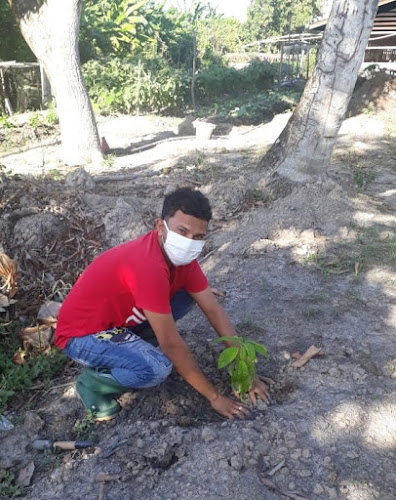Container Vegetable Gardening: The Taijbally’s response to COVID-19 and Better Health
Since
the World Health Organization declared the COVID-19 virus a pandemic in early
March, Guyanese of all ages have been asked to stay home as much as possible
and to socially distance themselves from others. One of the recommendations is
to avoid being in groups of more than 20 people. The purpose of the
“self-quarantine,” even for healthy people, is to slow the spread of the virus,
which threatens to overwhelm the hospital system.
It
was not very difficult for the Taijbally family to adapt to this new norm as
the family hails from the farming community of Johanna Cecelia on the Essequibo
Coast of Region 2. Mr. Ramsingh Taijbally motivated his wife Shivanie, his two daughters Arvinie and Divya, his mother Bhagmattie and
a very ambitious young nephew Ricky to embark on a container vegetable
gardening initiative. Farming isn’t something new to the Taijballys since they have
been involved in this for generations. However, to reduce the amount of times they
would have had to leave their yard, they set out to plant basic vegetables
at home, utilizing various types of containers.
This
entire initiative was of course spearheaded by Ramsingh who is currently a
Field Officer at the Partners of the Americas’ Farmer-to-Farmer Program. Having
graduated from the University Ciego de Avilla in Cuba in 2012 as an Agronomist,
he worked with the National Agricultural Research and Extension Institute (NAREI)
as a Plant Quarantine Officer while simultaneously lecturing part-time at the
Guyana School of Agriculture. Ramsingh is an innovative and production-driven
professional with a passion for rural development and food security.
In these troubled times when one cannot travel and socialize as
usual, Ramsingh’s family has kept even closer to the soil in moments of
upheaval to manage anxieties. His family has indicated that the pandemic has resulted
in stronger family ties. They relish the ongoing contact with nature and the
opportunity to produce healthy food for themselves. This family has always had the tendency to
utilize organic compost derived from the waste generated from their chickens
and cows along with paddy husk (rice hulls).
Ramsingh’s
daughters, Arvinie who is 6 years old and Divya who is 4, help to locate the
old unused containers and leftover construction materials and assist in filling
them with substrate, planting and watering. The family has been planting crops such
as tomatoes, peppers, and lettuce, as well as some ornamentals. Because of
Ramsingh’s ambition of going organic he prepares natural organic pesticides to
combat insects even before they present themselves. This is done according to
the guidelines of the F2F Guyana Container Gardening manual.
The Taijbally family gets more than enough produce for home use and as a result, excess produce is shared with neighbors or sold to earn extra income. Ramsingh’s wife, Shivanie said that “what drives me to my garden is not the fear of hunger but the fear of physical contact with others, along with my love for gardening”.



.png)

Comments
Post a Comment